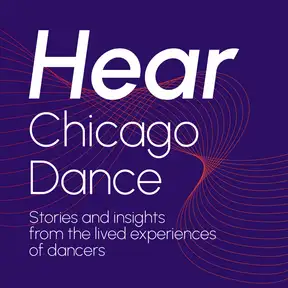Summary of Notions of Power & Success Metrics
Download MP3Narrated by Angelina Perino of Cove Chicago
A new movement is underway in the dance community. Those without power and means are no longer content with the status quo. Instead, they're striving for equity and inclusivity in every aspect of the art form.
“Spanish dance is not valued here in the United States or even in the Chicago dance community, like other art forms, like ballet, like contemporary dance. So I regularly am having the conversation with myself of what does it mean to be successful as Latino artist doing a culturally specific art form like Spanish dance?”
Success in the dance world is often measured differently by companies, institutions, and critics than by the dancers themselves. But now, there's a shift towards recognizing the value of individual journeys and diverse paths to achievement.
“I also teach history and I impart that to my students because if we know the past, then we know the future. And those things are hard to get when you're at a corporation, a big studio, because their objectives are usually a not the same.”
Those who have reclaimed power are using it to help others succeed — fostering a sense of community and solidarity that transcends competition.
When we asked dancers, “What is most important to the vitality of their current professional network?”
63.2% answered other artists within the field, and 61.8% indicated their professional peers.
Only 16.7% answered health service providers and only 5.6% answered that career advocates were most important.
“...what makes me successful is the people in my community who gets the benefit of my success.”
Dancers like Jonathan, Mad Dog, Lyn, and Devika are reasserting the meaning of success in the dance community. To them, success is leveraging and sharing their wisdom, experience, resources, and power to create change.
“It's kind of understood that if you're going to go showcase something, especially if it's your guru's choreography and you're representing them, you really need to, like, clear it with them first. So having that validation is definitely, it's important, but it also lets you know, yeah, you have reached this level. You're good to go, go out into the world and represent me.”
Institutions are being challenged to reevaluate their metrics of success, to understand that true excellence lies not only in technical prowess but also in the celebration and preservation of less mainstream cultural styles of dance.
Their stories are a lesson in remembering the power of our collective voices and the importance of valuing every dance form for its unique contribution to the tapestry of human expression.

